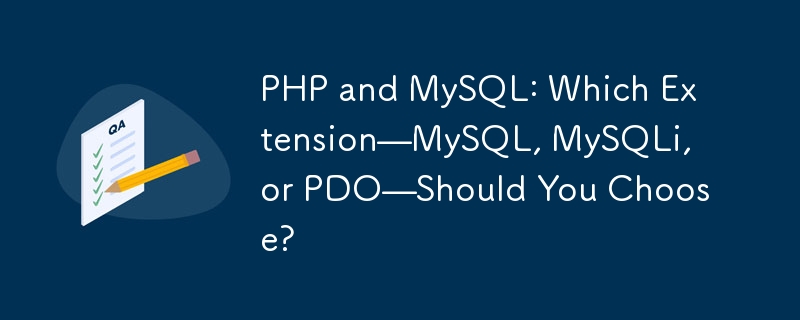
Exploring the Differences: MySQL, MySQLi, and PDO for PHP-MySQL Integration
When working with PHP and MySQL databases, developers face a choice among three prominent approaches: MySQL, MySQLi, and PDO. Each option offers unique characteristics and advantages, and selecting the most appropriate solution is crucial.
Functionality and Implementation
-
MySQL: Deprecated since PHP 5.5.0, MySQL functions provide a foundational but limited approach to interacting with MySQL databases. They employ procedural calls and necessitate manual data escaping.
-
MySQLi: The successor to MySQL, MySQLi incorporates both object-oriented and procedural interfaces. It offers improved functionality, including object-oriented data handling and prepared statement support.
-
PDO: PDO is a versatile database abstraction layer that unifies interactions with MySQL and many other database systems. It provides prepared statements and grants substantial control over data retrieval options.
Advantages and Considerations
-
MySQL: Simplicity and compatibility with older PHP versions.
-
MySQLi: Object-oriented programming and enhanced security measures through prepared statements.
-
PDO: Portability, flexibility, and advanced features (e.g., multiple result sets, emulated prepared statements), but potentially higher learning curve for novices.
Recommendations
For the best combination of security, functionality, and portability, PDO with prepared statements is the recommended approach. Its well-designed API simplifies database interactions and facilitates seamless transitions across multiple database engines.
The above is the detailed content of PHP and MySQL: Which Extension—MySQL, MySQLi, or PDO—Should You Choose?. For more information, please follow other related articles on the PHP Chinese website!






